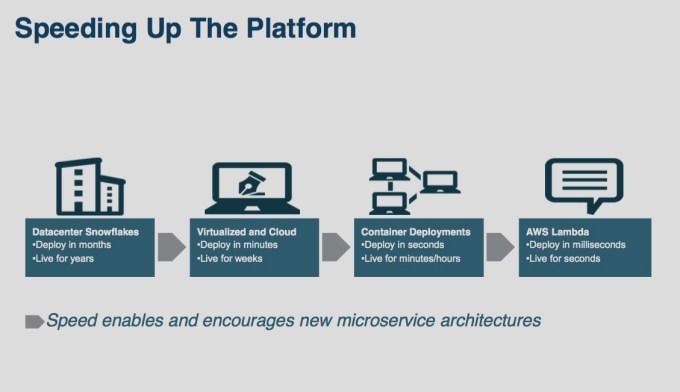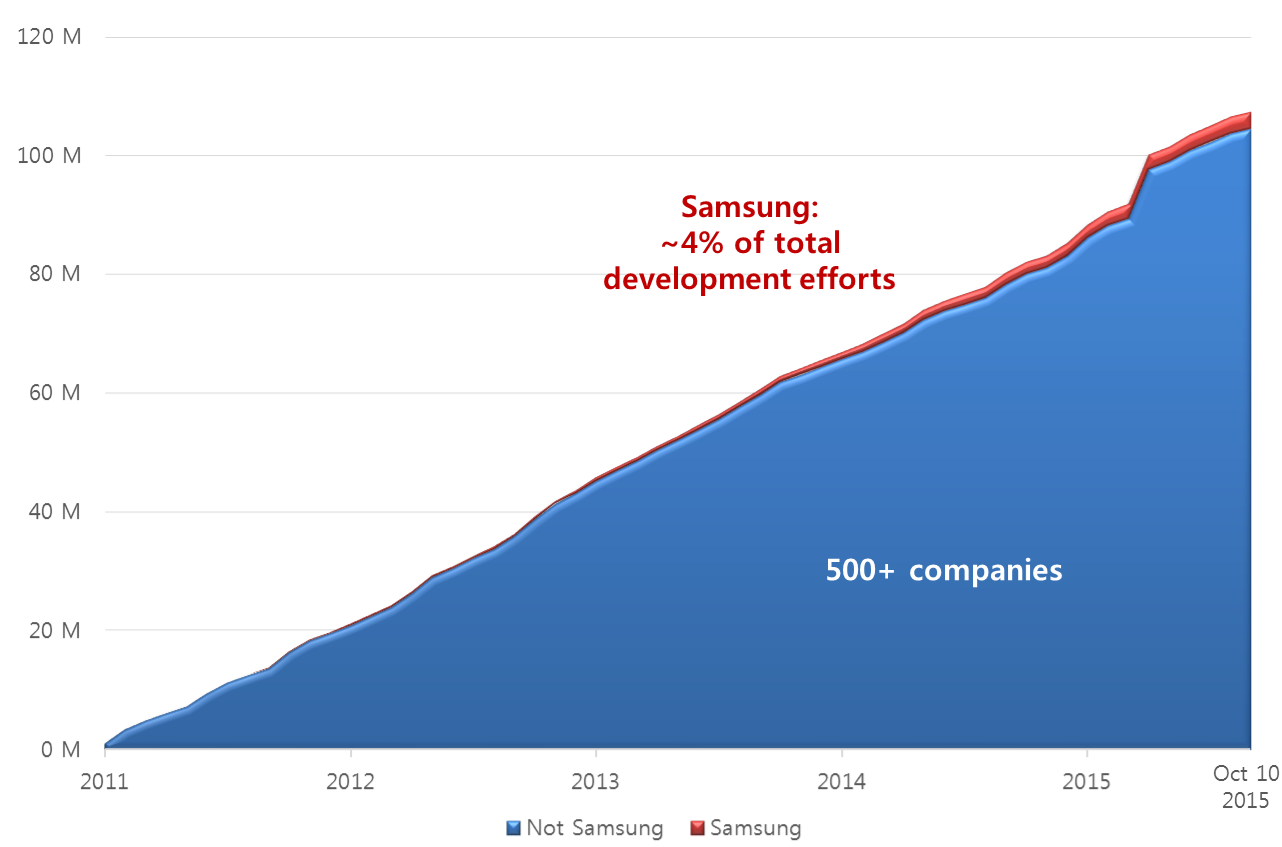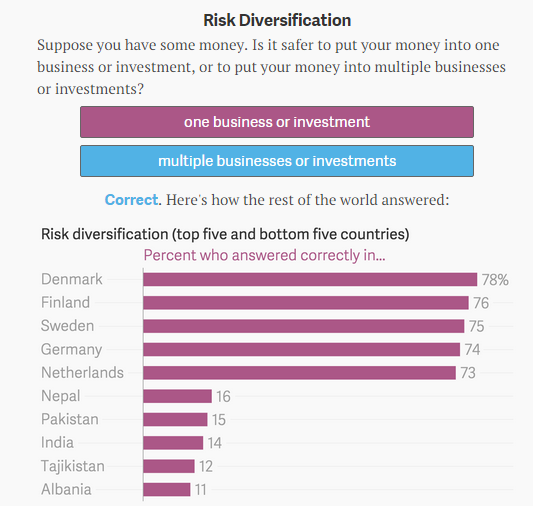Sections
The Doomsday Invention
[avatar user=”malm” size=”small” align=”left” link=”file” /]
The New Yorker have just published an extended interview cum profile of Nick Bostrom, founding director of the Future of Humanity Institute in Oxford. Bostrom is perhaps most famous for publishing a book called Superintelligence which examines the risk landscape around advanced Artificial Intelligence, particularly Artificial Superintelligence (ASI). In the article he comes across as a genuinely idiosyncratic character prone to walking fast around Oxford, wearing a cryogenic wristband and juicing his food. His work has been hugely influential and conveys a wan pessimism as befits a philosopher of risk. The parable of the existential black ball outlined in the video below is a good example. If nothing else, events in Paris last week have served to remind us that there are human beings that would not hesitate to take advantage of a black ball of doom if given the slightest chance:
Enterprises the world around are scrambling to acquire deep learning skills and thereby contributing to exceptional demand for those with expertise in this area. As pointed out in the commentary later in this week’s blog, they might be better off not bothering and leapfrogging straight to SaaS. Either way, there’s a sense of an inevitable march to destiny in a global eagerness to seize the day and leverage these developments for commercial gains without pausing to consider whether they might one day end up resulting in our extinction. The Precautionary Principle feels like it ought to be a more important factor in the equation.
The advent of superintelligent machines is just one of a grimly creative range of 150 Things We Should be Afraid Of. They include immortality, mutually assured destruction, the rise of global idiocracy and anti-intellectualism, men, water scarcity, Black Swans, worrying about existential threats and of course technological unemployment at the hand of robots:
Mobile and Devices
- Jolla, the alternative smartphone OS vendor is fighting for survival and having to lay off staff after its lead investor withdrew from a November funding round:
The company has filed for a debt restructuring program in Finland, and will “lay off a big part of its personnel.”
- The company’s CEO Antii Saarnio published a candid “open letter to Jolla community” which helped explain where all the money went. Mostly software development costs for the Jolla tablet:
Big part of the tablet project went to Sailfish OS software development (more than 50% of project costs). As I have said in earlier blogs, hardware is the easy part, software is the king (and the beast).

Google and Android
- Persistent rumours of the launch of a limited Google Play Store in China were given more credence this week with various outlets reporting it is likely to happen soon after Chinese New Year (Feb 2016). According to Reuters sources it sounds like the Chinese Play Store will essentially sit parallel to the rest of the world (RoTW) Google Play Store:
“The Google Play app store would be set up specifically for China, and not connected to overseas versions of Google Play … [Google] hopes the app store will include as payment options Alipay and WeChat Payment”
- Recode outlined the stiffness of the battle for relevance Google will face in China if and when they launch Play Store there. Today they are far down the list of app stores in terms of monthly active users:

- Google have released a new improved Android Studio 2.0 IDE with “massively accelerated deployment speeds“.

- Terence Eden got deleted by Google. His blog outlining what happened and what he’s going to do next (run away from Google properties asap) is well worth reading though be warned, it’s full of expletives:
Google doesn’t do customer services – that’s part of its business plan. Got a problem? Feel free to kindly piss right off. .. That’s no way to live. Constantly in fear that one day the most powerful information gatekeeper on the planet can decide you are persona non grata.
Apps and Services
- WeChat is already huge and increasingly indispensable in China. This BusinessInsider post outlines how it is being employed by rich Chinese users to help purchase second homes in the US.
- Microsoft Office just celebrated its 25th birthday. Here are the major milestones of one of the world’s most well-known Millennials:
- Connected dialler proposition Truecaller now has an impressive 200 million users.
- Snapchat’s Story Explorer sounds like an attempt to group together related user content into collections sort of like Twitter Moments. It’s not clear it will work as well in Snapchat’s case given their core user base differences:
It will be interesting to see how Snapchat’s users respond to having their Snaps made available to anyone who swipes up on something shared to a Live Story. Despite the app’s utility as something more than a sexting service, its beginning as a private and ephemeral social network doesn’t lend itself to features like this.
Security and Encrypted Messaging
- After Paris, TNW reflect on the growing existential crisis for the Internet as originally envisaged with governments all over the world reining in digital freedom in the name of security. They likely to be further emboldened by events in France:
Each year, millions more citizens of the world access the internet, yet the internet they’re accessing appears to be shrinking. Governments, ranging from the most democratic to the most authoritarian, sacrifice digital liberty in the name of security.
- The battle lines seem drawn between state actors who want unencumbered access to digital communication and corporations like Apple and Microsoft who believe imposition of backdoors “would almost certainly cause serious physical and financial harm across our society and our economy“. In the UK, the government has used the opportunity to try and fast-track the Investigatory Powers Bill even as a UK ISP boss highlighted serious technical issues within it. Encrypted P2P messaging is right on the frontline and facing growing scrutiny though doubts remain about exactly how important or widespread its use is within ISIS. That hasn’t stopped the Telegraph from asking why Silicon Valley is “helping tech savvy jihadists” with a proliferation of free end end consumer encrypted messaging propositions. Adding fuel to fire, TNW revealed that Telegram’s founder knew ISIS were using the platform well before the Paris attacks and apparently seemed largely ok with that. A US state official interviewed on CNN clearly wasn’t and his diatribe vividly highlights the extent of the gap between the two camps:
- The encrypted messaging frontline is bound to be bitterly contested over the coming months. The EFF’s latest secure messaging scorecard highlights the bewildering array of consumer propositions available today for parties wishing to use P2P encryption. And it continues to be a rapidly evolving scene. Just this week Soma launched encrypted group voice and video calling.
- Ever alert to an opportunity, Microsoft are riding to the rescue apparently building a giant intelligence security graph in a move that seems blatantly aimed at courting US government interest:
The hub of this network will run out of the company’s Redmond home in a grand new Cyber Defense Operation Centre, which forms part of a $1 billion investment in security that Microsoft claims it spends every year on protecting itself and customers.
- Interesting insight into a shady and secretive world from Wired in an article that outlines the price of various different zero-day exploits:
Remote exploits that entirely defeat the security of an Android or Windows Phone device go for as much as $100,000. And an iOS attack can earn a hacker half a million dollars, by far the highest price on the list.
Cloud Computing
- AWS Lambda is a key enabler for what Gartner call the “Third Platform” that is fast displacing the old client-server paradigm. This handy TechCrunch post helps explain why it “makes serverless applications a reality“:
With Lambda, instead of deploying these massively large applications, you deploy an application with some single-action triggers and you only pay for the compute power you use, priced in 100 millisecond increments of usage.

- Not strictly tech at all but charming nevertheless, BrainPickings on how clouds first got their names “by a thoughtful young man whose favorite activity was staring out of the window at the sky“.
Artificial Intelligence
- The logical consequences of robotic writing powered by search engine statistics are inherently problematic because Google by default needs must end up regressing to the mean to predict your future. And to paraphrase the Arctic Monkeys, what if whatever Google says you should be is not what you are?
“Will it in fact be what we wanted, or will it be a mishmash of expected behaviours, that we’ll regret on our deathbeds?”
The Internet of Things
- Getting started on the Internet of Things with Python and the Intel Edison sensor board. Or you could just use a Raspberry Pi and SenseHat. Or even now the freshly announced £4 Raspberry PiZero being given away for free with the latest edition of MagPi:
In case you somehow missed it: The MagPi 40 is out. It has a free Raspberry Pi Zero on it. https://t.co/nxgg1dkPDc pic.twitter.com/kL2FIzTQJ1
— The MagPi (@TheMagP1) November 26, 2015
- Engadget reviewed the Dyson Eye 360 robotic vacuum cleaner which has been covered in this blog several times already this year. They found much to admire but baulked at the eye-watering $1200 price tag.
Software Engineering
- Tremendous Medium post from Betable’s CTO on why Math.random() in the V8 Javascript engine isn’t actually that great at generating random numbers on account of having a poor PRNG. The issue was uncovered by a random number generation collision that should have been nigh on impossible.
- Brian Warner is Senior Open Source Strategist at Samsung based in the US. He’s just published a fascinating must-read post revealing another side to Samsung that many might not be aware of, namely their heavy upstream contribution to key Linux-based open source projects. The central thesis of his post, that working with upstream is good for business, is one which many Asian companies are still to realise. The maturity exhibited here is the result of a decade or more Samsung journey working with open source software and its developers:
If you want the full economic and technical benefit of consuming open source, you hire people who are already influential in the projects that matter to you. You then ask them to continue doing exactly what they do: write great code, manage great releases, and contribute to the overall stability of the project. This is the single best way to ensure stability and predictability in your software supply chain.

- You may want open source savvy developers but maybe not Narkoz whose collection of lifehacker scripts seems to cover the gamut of common slacker scenarios. His hangover.py script (Python3 compliant of course) is a great example of that oeuvre:
#!/usr/bin/env python3
# -*- coding: utf-8 -*-
import datetime
import random
from twilio import TwilioRestException
from twilio.rest import TwilioRestClient
from hackerutils import get_dotenv, get_log_path, sh
dotenv = get_dotenv()
TWILIO_ACCOUNT_SID = dotenv['TWILIO_ACCOUNT_SID']
TWILIO_AUTH_TOKEN = dotenv['TWILIO_AUTH_TOKEN']
LOG_FILE_PATH = get_log_path('hangover.txt')
def main():
# Skip on weekends.
if datetime.date.today().weekday() in (0, 6,):
return
# Exit early if any session with my_username is found.
if any(s.startswith(b'my_username ') for s in sh('who').split(b'\n')):
return
client = TwilioRestClient(TWILIO_ACCOUNT_SID, TWILIO_AUTH_TOKEN)
# Phone numbers.
my_number = '+xxx'
number_of_boss = '+xxx'
excuses = [
'Locked out',
'Pipes broke',
'Food poisoning',
'Not feeling well',
]
try:
# Send a text message.
client.messages.create(
to=number_of_boss,
from_=my_number,
body='Gonna work from home. ' + random.choice(excuses),
)
except TwilioRestException as e:
# Log errors.
with LOG_FILE_PATH.open('a') as f:
f.write('Failed to send SMS: {}'.format(e))
raise
if __name__ == '__main__':
main()
Digital Enterprise
- bigdataforhumans.com sounds, on paper, like a compelling proposition seeking to disintermediate IT/devops and data science silos with a one stop SaaS product aimed at digital marketeers fed up with IT excuses. Some of their web site collateral however skirts dangerously close to Nathan Barley territory:
Using network theory our software builds and maintains transactional models of customers across billions of calculations. This method is incredibly sophisticated and enables businesses to immediately productionize the data science. Data scientists and analysts are then able to add value through creative experimentation.
- Or even in fact sits right within it:
Our software is at least 10x faster than current technology, so your insights and actions are at the speed of customers and not the IT team.
- There doesn’t seem to be any secret sauce in their tech stack that could explain how they could be “10x faster” than using a general purpose indexing proposition like Splunk for example:
- Agile practices and methods
- .Net (C#)
- HTML, CSS, JavaScript, etc
- Databases and ETL
- Microsoft Azure and AWS
- PowerShel (sic)
- It’s worth contrasting with this more thought-through McKinsey article on how the science and practice of using analytics to drive personalised marketing is beginning to climb out of ‘uncanny valley’. It underlines the critical role that senior management have in supporting cross-cutting digital/data-led initiatives within a modern Enterprise:
A sustained commitment to analytics. Data and analytics are the backbone of personalization at scale, but an IT-only project won’t work. Senior leadership commitment and cross-functional involvement are required to support the infrastructure and continuously update the data and advanced analytics models that fuel the decision-making engine.
- Interesting Adobe-sponsored insight into Digital Transformation (DX) at leading UK heritage car brand Aston Martin provided by Simon Sproule, CMO. He certainly seems to have grasped the digital marketing nettle. Mind you, having James Bond in your content arsenal surely helps pay for the smarts underlying the strategy:
My CEO is an engineer so he thinks he now has a better skill set for marketing than I do because it is a data-driven business; analytics have come to the fore. Marketers need to stay on top of analytics, and make data-driven decisions. … We now have more people who have a good grasp of data and can make decisions based on it, and it is also reflected in the fact that we are moving away from a patchwork quilt of smaller agencies to bigger partners who have access to bigger data and can provide us with bigger solutions and–I believe–can keep us more up to date with analytics solutions. It is a combination of agency support plus the right balance of people in our internal team.

Work
- If you’ve ever been tempted by the dream of a well-paid do-nothing job, this post is for you.
- Yet another bland post outlining the obvious, namely that “the idea that anyone can predict disruption is flawed fundamentally” is notable mainly for this quote from Alberto Torres, ex-Meego chief at Nokia:
If I told you in 2007 that Motorola, Blackberry and Nokia would sell for a total less than what Facebook paid for WhatsApp in 2014, you would have thought I was crazy
- Gary Klein’s work on expertise is extensively cited in Daniel Kahneman’s classic “Thinking, Fast and Slow“. A happy find this week was a copy of one of his research papers which underpins the WYSIATI (what you see is all there is) pattern typically exhibited by those lacking expertise of situation classes or contexts. It underpins why for Klein expertise should be valued and not questioned or dismissed as can often be the case these days in favour of passion and/or youth:
“There is no way for a novice to judge what is normal and what is an exception.”
You will think about expertise differently after this: https://t.co/nBE5oUTBBI #devops
— John Allspaw (@allspaw) November 20, 2015
- Someone who has a great deal of expertise about management specifically is Kim Scott who has worked at Google and Apple. Her key guidance for being a good engineering leader is to combine caring personally with challenging directly or top right quadrant in the grid below. For Scott, challenging directly trumps the alternative making obnoxious aggression the next best thing:

Culture and Society
- Two thirds of the world can’t pass this basic financial literacy check. Hopefully if you’ve been reading this blog, you can. 65% of global respondents failed to understand a question whose answer was highlighted in week 1 this year here as the fundamental reason the rich remain rich irrespective of economic climate:
- The BBC on why the world is on the cusp of the “post-antibiotic era”, another thing to add to the worry bucket list:
- Quartz on why “gene drives” could be the next weapons of mass destruction.
- The Atlantic in a powerful atmospheric piece examine the clustering of Silicon Valley suicides and try to develop some explanation as why so many super bright ostensibly highly privileged teens are driven to kill themselves.

- Staying with teens, apparently one if five in the UK “believe everything they see on the Internet is true“. It was 33% in 2011. This and other fascinating insights into Internet usage amongst UK children are outlined in this major Ofcom study.
- After Paris, we had a week when the shutdown in Brussels appropriately enough for a city that celebrates Magritte veered towards the surreal. Politico.eu explained why Belgium’s byzantine linguistic and regional differences have turned it into a “failed state” in the heart of Europe:
Brussels’ nest of radicalism is just one of the failings of a divided, dysfunctional country.
- David Frum in an incendiary piece in The Atlantic underlines the message suggesting that bombing Syria will do nothing to alleviate the threat in Europe because the enemy is already within the gates. It’s worth bearing in mind that Frum is a polarising right-winger who used to write speeches for George Bush and it shows:
The enemy against which France and Europe are struggling is not centered in Syria. It receives examples and inspiration from Syria. It travels to Syria for practice and training. But it arises and is formed at home, inside Europe. It threatened Europe long before ISIS ever took shape.




